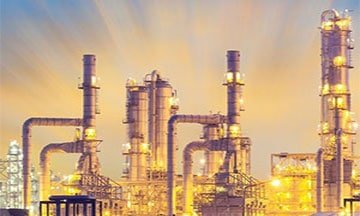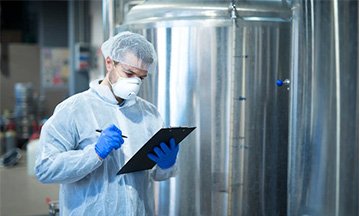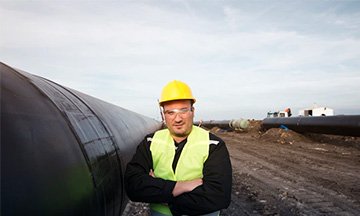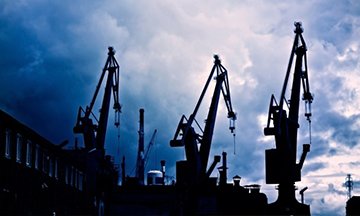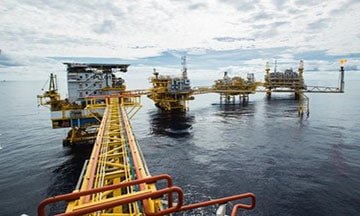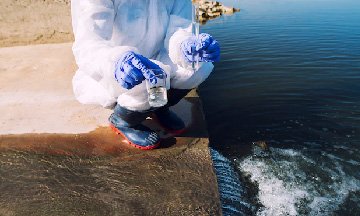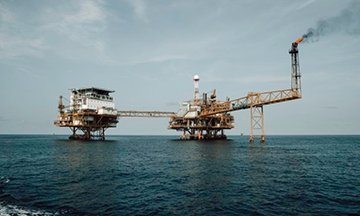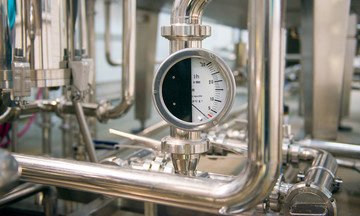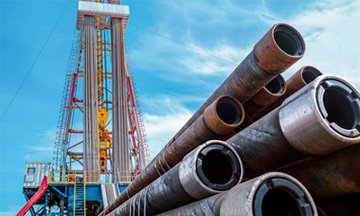Advanced Petroleum Engineering Training Course
| Date | Venue | Duration | Fees | |
|---|---|---|---|---|
| 29 Apr - 03 May, 2024 | Dubai | 5 Days | $4750 | Register |
| 27 May - 31 May, 2024 | Dubai | 5 Days | $4750 | Register |
| 17 Jun - 28 Jun, 2024 | Dubai | 10 Days | $8775 | Register |
| 29 Jul - 02 Aug, 2024 | Dubai | 5 Days | $4750 | Register |
| 31 Jul - 02 Aug, 2024 | Istanbul | 3 Days | $4475 | Register |
| 19 Aug - 23 Aug, 2024 | Dubai | 5 Days | $4750 | Register |
| 02 Sep - 13 Sep, 2024 | Dar Es Salam | 10 Days | $9150 | Register |
| 16 Sep - 20 Sep, 2024 | Dubai | 5 Days | $4750 | Register |
| 07 Oct - 18 Oct, 2024 | Amsterdam | 10 Days | $9850 | Register |
| 07 Oct - 11 Oct, 2024 | Dubai | 5 Days | $4750 | Register |
| 11 Nov - 15 Nov, 2024 | Dubai | 5 Days | $4750 | Register |
| 02 Dec - 06 Dec, 2024 | Dubai | 5 Days | $4750 | Register |
| 18 Dec - 20 Dec, 2024 | Toronto | 3 Days | $4475 | Register |
Course Overview
What is petroleum engineering? Petroleum engineering refers to all activities concerning the production of hydrocarbons, mainly crude oil and natural gas. Exploration and production are two critical processes and constitute the upstream sector of the oil and gas value chain.
Geologists and petroleum engineers take collective efforts to ensure that reservoir health is maintained and resources do not deplete. Since petroleum engineering is important and encompasses a wide range of activities, it requires knowledge in multiple other disciplines. Hence, pursuing a career in petroleum engineering requires one to undergo multiple training programs.
This Zoe training course will empower you with detailed information and knowledge about all aspects of petroleum engineering. By undertaking this course, you will acquire all that is required to successfully assume senior roles and responsibilities within this domain, in turn demonstrating talent and potential and inviting multiple opportunities to fast track your career progression.
Course Objectives
The primary objective of this Masterclass in Petroleum Engineering training course is to empower professionals with—
- complete information and knowledge of all aspects of petroleum engineering
- the required skillset and capabilities to handle any function or process related to the hydrocarbon production, thereby demonstrating one’s potential to assume higher roles and responsibilities
- the necessary confidence and exposure to train other professionals to adopt best practices to be successful petroleum engineers
- the confidence and experience to oversee end-to-end operations related to petroleum engineering, thereby securing one’s career progression within and outside the organisation
- an understanding of various techniques that can be applied to enhance the speed of operations and improve operational productivity
- the required confidence and skill to work with newly introduced technological processes to speed up hydrocarbon production
- a thorough understanding of all aspects related to petroleum engineering to effectively troubleshoot challenges and prevent these from impacting the organisation or its operations
- the ability to contribute to organisational growth and development through operational excellence and reduced costs
- the overall skill set and confidence to manage any and every role involved in hydrocarbon production, thus increasing avenues for growth
Training Methodology
Zoe Talent Solutions delivers training in a very unique format. This format includes theoretical delivery through lectures conducted by experienced professionals from the relevant domain as well as practical lessons through group projects, assignments, role-plays etc. The trainer also encourages trainees to share related ideas and problems they face at their workplace, and these are then discussed with the rest of the group for idea sharing, situational analysis etc.
This format is adopted by Zoe Talent Solutions for all its courses and is called the Do–Review–Learn–Apply Model.
Organisational Benefits
With professionals undertaking this Masterclass in Petroleum Engineering training course, their organisations will benefit in the following ways:
- Seamless and efficient end-to-end operations for hydrocarbon production
- Application of innovative ideas and techniques to enhance various processes within the organisation
- Increased frequency for employee training and upskilling
- Better risk assessment and management
- Effective use of technology for enhancing operational productivity and quality by reducing human dependence
- Cross-skilled employees to act as immediate replacements to prevent certain operations or functions from stopping for the want of skilled resources
- Optimal use of available resources and equipment, thereby preventing redundant activities and saving costs
- Increased credibility and stability because of the effective and timely management of challenges
- Organisational development through the introduction of top-class methods, greater credibility and reduced costs
Personal Benefits
Professionals enrolling for this Masterclass in Petroleum Engineering training course will derive the following benefits:
- Detailed understanding and knowledge of end-to-end processes related to petroleum engineering
- Increased awareness and experience to troubleshoot issues and take timely, accurate decisions to prevent major impact to the organisation
- Better understanding and knowledge to train other professionals on best practices and technical aspects of petroleum engineering
- Enhanced skill set and capabilities to work with advanced technology and other related avenues to optimise hydrocarbon production
- Exposure to and understanding of the newest techniques and methods used by organisations to increase productivity and save costs
- A sense of pride contributing to organisational growth by establishing a competitive advantage for one’s organisation through accurate risk evaluations, operational excellence, etc., also demonstrating one’s potential to grow to higher responsibilities
- Enhanced skill set and capabilities to handle and manage any function of hydrocarbon production, meanwhile enriching one’s professional portfolio to secure multiple attractive opportunities across organisations
Who Should Attend?
- All engineers and staff executing the various functions that are integral to petroleum engineering
- Leaders and supervisors overseeing operations across the upstream value chain
- Senior management members responsible for critical cost-related decisions for the organisation
- Vendors involved in supplying raw material or finished product at various stages of the upstream value chain
- Financial and legal advisors responsible for ensuring adherence and rightful attention to financial and legal observations within the organisation
- Quality managers ensuring maintenance of all required quality standards
- Any other professional interested in knowing more about petroleum engineering
Course Outline
The Masterclass in Petroleum Engineering course covers the following critical to master all disciplines or fields concerning petroleum engineering:
Module 1 – Overview of Petroleum
- Composition
- Characteristics
- Uses
Module 2 – Petroleum Development Process
- Exploration phase
- Appraisal phase
- Development phase
- Production phase
- Decommissioning/Abandonment phase
Module 3 – Broad Steps in Petroleum Engineering
- Diagenesis
- Catagenesis
- Metagenesis
Module 4 – Types of Petroleum Engineers
- Reservoir engineers
- Drilling engineers
- Drilling fluid engineers
- Completion engineers
- Production engineers
Module 5 – Exploration Technologies for the Offshore Industry
- Digital transformations
- Methane detection systems
- Seismic imaging
- Artificial intelligence
- Automation
Module 6 – Stages of Oil Extraction and Recovery
- Primary recovery
- Secondary recovery
- Enhanced recovery
Module 7 – Geological Requirements for Formation of Conventional Hydrocarbon Reservoirs
- Source rock
- Migration path
- Caprock
- Reservoir rock
- Trap
Module 8 – Types of Traps
- Structural traps
- Stratigraphic traps
- Combination traps
Module 9 – Rock and Fluid Properties
- Porosity
- Permeability
- Interfacial connection and tension
- Drive mechanism
Module 10 – Types of Drilling
- Conventional
- Horizontal
- Slant
- Directional
Module 11 – Activities of Drilling Engineering
- Completion engineering
- Operational engineering
- Production engineering
- Reservoir engineering
Module 12 – Types of Well Logging
- Radioactive
- Electrical
- Sonic/acoustic
- Nuclear magnetic resonance
- Dielectric
Module 13 – Processing Units in Refineries
- Crude oil distillation unit
- Vacuum distillation unit
- Naphtha hydrotreater unit
- Catalytic reforming unit
- Alkalytion unit
- Isomerisation unit
- Distillate hydrotreater unit
- Merox unit
- Amine gas treater
- Fluid catalytic cracking unit
- Hydrocracker unit
- Visbreaker unit
- Delayed coking and fluid coker units
Module 14 – Auxiliary Units in Refineries
- Steam reforming unit
- Sour water stripper unit
- Utility units (cooling towers, steam generators, control valves, electrical substation)
- Wastewater collection and treating systems
- Liquefied petroleum gas storage vessels
- Storage tanks
Module 15 – Types of Petroleum Refining End-Products
- Light distillates
- Middle distillates
- Heavy distillates
Module 16 – Types of Geophysical Methods in Petroleum Engineering
- Magnetic method
- Gravity method
- Seismic method
Module 17 – Steps in Seismic Exploration
- Data acquisition
- Data processing
- Interpretation
Module 18 – Types of Seismic Surveys
- 2D
- 3D
- 4D
- Geohazard or well site survey
- Vertical seismic profiles
